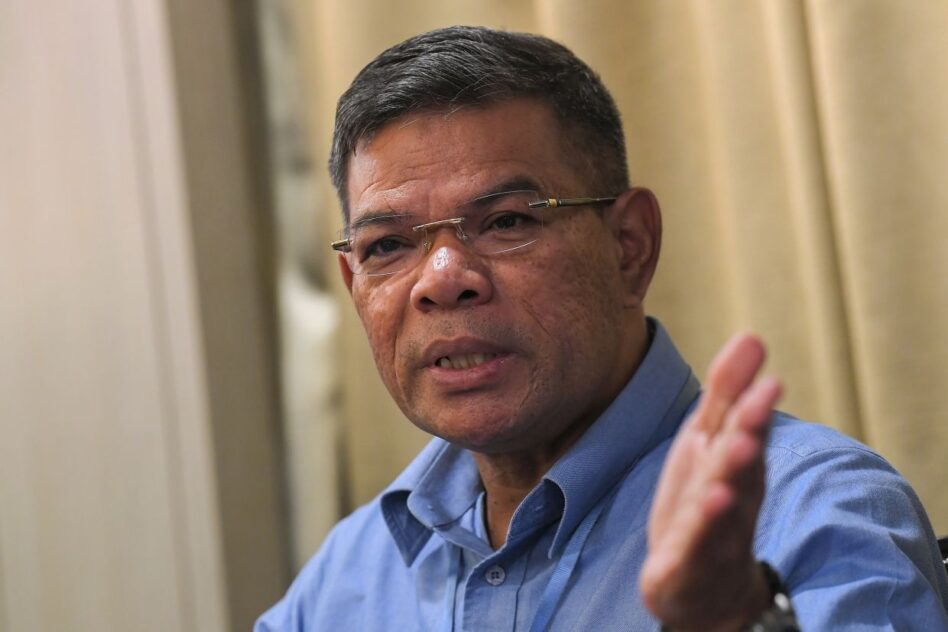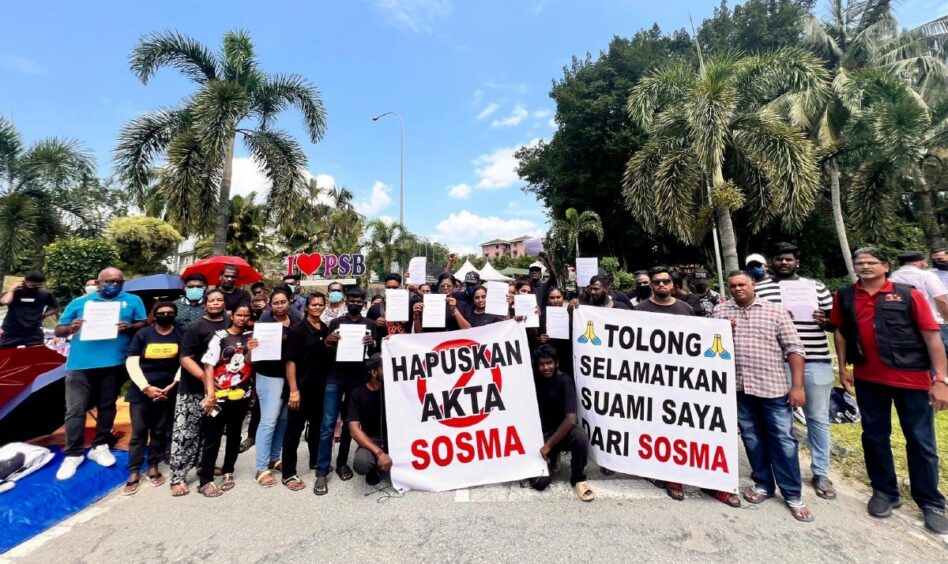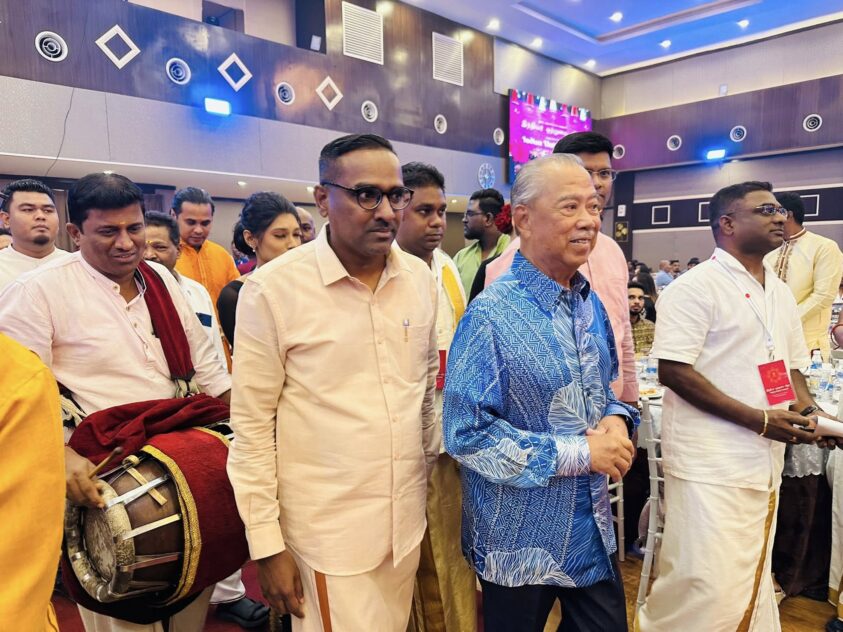THE Malaysian Bar’s recent call for the complete repeal of the Security Offences (Special Measures) Act 2012 (SOSMA) is a clarion call for justice, human rights, and the rule of law.
While the government’s decision to review certain provisions of SOSMA is a positive step, it falls short of addressing the fundamental flaws embedded in this draconian legislation.
Piecemeal amendments cannot rectify a law that is inherently oppressive and antithetical to the principles of democracy and justice.
As Chairman of Majlis Gagasan Malaysia, I stand firmly in support of the Malaysian Bar’s position and urge the government to repeal SOSMA in its entirety.
A threat to fundamental rights
Enacted in 2012 under the pretext of addressing national security threats, SOSMA grants law enforcement agencies sweeping powers that override fundamental rights enshrined in the Federal Constitution.
These include the right to liberty, the right to a fair trial, and the presumption of innocence, cornerstones of any democratic legal system.
One of the most egregious aspects of SOSMA is its allowance for detention without charge for up to 28 days, twice the standard 14-day remand period under the Criminal Procedure Code.
While detainees must be presented before a magistrate within 24 hours, judicial review remains limited, and magistrates have little discretion to intervene meaningfully.
This extended detention period creates an environment ripe for abuse. Detainees are often held incommunicado, denied access to legal counsel, and subjected to conditions that increase the risk of coercion, forced confessions, and mistreatment.
Such provisions not only violate international human rights standards but also undermine the integrity of Malaysia’s legal system.

Although Malaysia is not a signatory to the Covenant, these international instruments serve as moral and legal benchmarks, highlighting the deficiencies in SOSMA’s implementation.
Furthermore, SOSMA denies bail for individuals accused of security offences, effectively subjecting them to indefinite pre-trial detention. Currently, bail is absolutely prohibited except for women, children under 18, and the elderly.
While Home Minister Datuk Seri Saifuddin Nasution Ismail has announced plans to reassess the list of 73 non-bailable offences under SOSMA, this review must go further.
Bail decisions should be based on the severity of the offence and individual circumstances, not blanket prohibitions.
Historically, laws similar to SOSMA, such as the now-repealed Internal Security Act (ISA), were weaponised to detain political opponents, activists, and government critics.
The continued existence of such oppressive measures erodes public trust in the justice system and perpetuates a legacy of abuse.
For Malaysia to uphold democracy and justice, its security laws must align with constitutional rights and due process, not institutionalise unchecked governmental power.
Comprehensive reform needed
The government’s announcement to review SOSMA, particularly its bail provisions and 28-day detention period, is a step in the right direction.
However, tinkering with specific provisions will not address the deep-seated flaws within this legislation. SOSMA’s framework is inherently oppressive, and without comprehensive reform, it will continue to pose a threat to civil liberties.
Saifuddin has also proposed reviewing Section 30 of SOSMA, which permits detention pending the completion of legal proceedings. He stated that this review would align Section 30 with Section 13, which governs bail.
While this move is commendable, any changes must prioritise mandatory judicial oversight and strict time limits to prevent indefinite detention.
The Malaysian Bar has rightly pointed out that existing laws, such as the Penal Code and the Criminal Procedure Code, already provide law enforcement agencies with ample statutory powers to investigate and prosecute security offences.
These laws strike a balance between ensuring national security and safeguarding individual liberties. They allow for thorough investigations while upholding the right to a fair trial, a balance that SOSMA fails to achieve.
Dedicated SOSMA court

Saifuddin further proposed the establishment of a special court for SOSMA cases, modelled after existing courts for corruption, trafficking, and cybercrimes.
While the intention to expedite trials and reduce delays is commendable, this proposal fails to address the core issue: SOSMA’s inherent infringement on human rights.
A dedicated court operating under a flawed legal framework risks institutionalising injustice rather than resolving it. Without comprehensive reform of SOSMA’s oppressive provisions, such a court would merely perpetuate systemic abuses rather than eliminate them.
Instead of amending SOSMA, the government should focus on strengthening the existing legal framework while ensuring that law enforcement agencies have the necessary resources and training to combat security threats effectively.
The threat to democracy and the rule of law
The existence of SOSMA casts a long shadow over Malaysia’s commitment to democracy, human rights, and good governance.
Laws that permit indefinite detention, denial of bail, and limited legal recourse have historically been misused to silence political opponents, activists, and marginalised communities under the guise of national security.
The lack of stringent oversight mechanisms within SOSMA makes it prone to abuse, leading to wrongful detentions and prolonged uncertainty for those accused.
The absence of accountability measures contradicts the principles of fairness, transparency, and justice that should form the foundation of any democratic nation.
If Malaysia is to maintain its status as a progressive democracy, it must reject such outdated legal instruments and prioritise the protection of fundamental rights.
Dr Manivannan Rethinam is the Majlis Gagasan Malaysia chairman.
The views expressed are solely of the author and do not necessarily reflect those of Focus Malaysia.
Main image:










